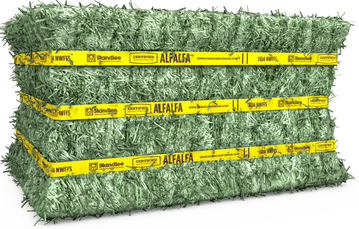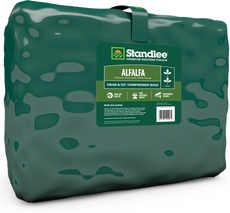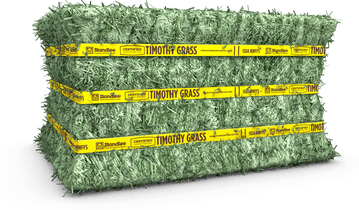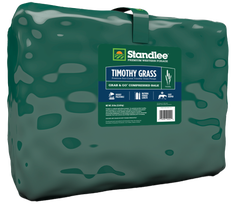Forage consumption is essential to provide proper nutrient levels to horses while maintaining gut function and supporting microbial health throughout the GI tract. The nutrient content, quality and variability are important factors in determining the source of forage to be included in the specific diet.
Typically, consumers select a forage source that they feel is appropriate for their horse while also choosing based on geographical availability, price and perceived quality. While many horse owners feed locally sourced hay due to availability and cost, this study proves that hay produced on a large scale may have a more consistently high nutrient content and quality.
Standlee Timothy provides consistent nutrition to maintain optimal gastrointestinal function and support digestive health. In this study, Standlee Premium Timothy Grass had higher nutrient content compared to locally sourced grass hay. Feeding Standlee Premium Western Forage products (bagged forage or bales) will boost the quality, consistency and nutrient profile of marginal quality forage. This will help satisfy horses’ nutrient requirements and decrease the amount of grain needed.
Alfalfa has been demonstrated to have other beneficial effects, such as supporting gastric health as it relates to the development of gastric ulcers.
Glucose Response to Feeding
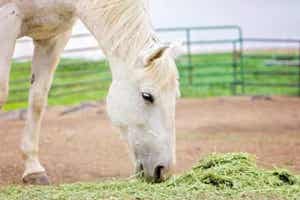
One of the distinctions to not in this study was a slightly but still significantly lower WSC + starch level in the Standlee alfalfa vs. the locally sourced alfalfa hay. This is of significance due to the importance of regulating the total intake of starch and sugar in the horses’ diet specifically related to those horses with insulin dysregulation or metabolic dysfunction. This can be further observed in the glucose response to feeding in that when fed Standlee alfalfa, the horses displayed lower peak levels of glucose, an important factor in metabolic dysfunction.
Glucose Response to Feeding Over Time

It is important to note that overall the glycemic response to feeding was low and this study suggests that the Standlee alfalfa may be appropriate for those horses with metabolic dysfunction; however, the overall diet of horses with metabolic dysfunction must be considered on an individual basis before any feeding suggestions be made.
Standlee Premium Products recommends seeking advice from your veterinarian or equine nutritionist before making any changes to your animals' diet.
Claims are based on joint studies between Standlee Premium Western Forage and Purina Animal Nutrition in 2016 & 2017. A veterinarian should evaluate changes in diet before implementation. Claims not verified by AAFCO. Claims are intended for informational use only and should not be considered as healthcare advice, veterinary or medical diagnosis, treatment, or prescribing of any kind. Proper medical assessment and veterinary recommendation should be obtained before making any changes to your animal’s diet.

